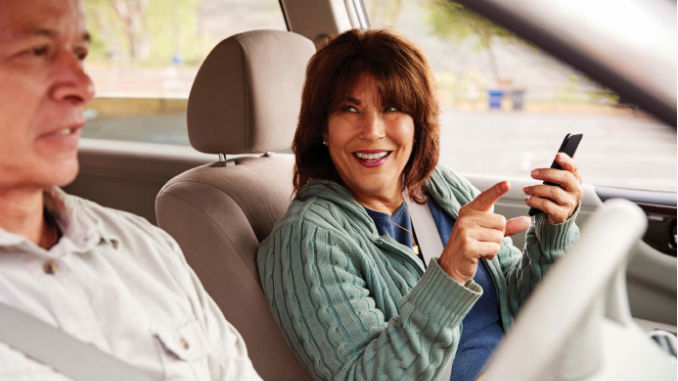
How we all learned to stop worrying about getting lost
Published: February 26, 2019
By: Greg Carannante
Remember when you used to ask for directions? Or use a map? Or try to fold a map?
Now, remember when you stopped having to do all that? It was no doubt when you began using your GPS, those three little letters that stand for Go Please, Stupid … I mean, Global Positioning System. There hasn’t been a technological advance that’s made it easier to make your way to just about anywhere since the invention of the automobile, has there? I don’t think so. Hold on, let me ask Siri….
Siri says, “Go Please, Stupid.”
The other day, I got a call from an old friend from Colorado who visits every year. We made plans for him to come over that night, and I absent-mindedly asked, “Remember how to get here?”
“I’ll just use my GPS,” he said, matter-of-factly.
Of course. How dinosaur-ish of me. Nobody needs to remember how to get here, there or anywhere no matter where they may be these days. I relish the freedom to buckle myself into the driver’s seat without the slightest hunch of how to get where I’m going, knowing that with my GPS I can get there every time without a hitch. Not including those one or two occasions when it steered me wrong and I arrived at the pinned destination only to discover that it wasn’t the place I was looking for — or that there was nothing there at all.
But other than those rare, maddening muck-ups, the nice GPS lady with the strictly business demeanor will reliably talk me through turn-by-turn directions to any place from Lazy Lake, Broward County, to Cold Bay, Alaska. She’ll even give me a choice of routes and track my forward progress on a screen. And if I miss a turn, before I even realize my error she’s already made the navigational corrections to get me back on course. And quite adamantly, at that. (All right already — I’m proceeding to the route! I’m proceeding to the route!)
Among the constellation of over 2,000 communication satellites orbiting the Earth, the 24 GPS satellites are among those space-age marvels that most directly impact our everyday lives. Because of this miraculous little feature in our smartphones and smart vehicles, we know to turn right in 700 feet because a satellite nearly 13,000 miles out in space is telling us to turn right in 700 feet — and doing so within a pinpoint accuracy of less than one foot. What kind of 21st century voodoo is that?!
And what convenience! I’m, um, experienced enough to remember the ritualistic hassles of having to ask for directions, scribble them down, invariably get them wrong (did he say “left then right” or “right then left”?), realize I’ve lost my way and end up pulling into a gas station to ask the attendant (a gas station attendant — as if!) how to find Peekaboo Lane. And even when Mapquest came along and computerized the process, I still had to try to follow my printed-out map and directions without taking my eyes off the road.
But such collective memories are on the off-ramp to extinction. As with so many of today’s techno perks, young drivers have no reference for such clunky hindrances (what’s an atlas?) and probably no appreciation for the stress-free lives they’re living when it comes to things like finding their way to a party house they’ve never partied at before or finding their way back home glassy-eyed much later that night. Talk about your game-changers!
And we can kiss the old gender mythology goodbye, too. Making sure you got where you were headed used to be a man’s job. And for some, not asking for directions was a defiant right of manhood. Women, of course, were said to have a bad sense of direction and were content to leave the navigational duties to men — until, of course, they found themselves lost, at which time the air of contentment flew out the open window. Now everyone, male or female, can be Magellan.
Almost as amazing than GPS itself is the fact that it doesn’t cost us anything to use it (unless you count our tax dollars). Launched by the Department of Defense in 1973, the service became available to civilians in the 1980s and is shared with us all free-of-charge by the U.S. government.
So, next time you hear “Your destination is on the right,” maybe it wouldn’t be such a bad thing to have a kind thought for old Uncle Sam, and remember a time when getting there wasn’t always half the fun.
After all, it won’t be too many years before the cars are driving us — and listening to that nice GPS lady will be about as passé as reading a map.
